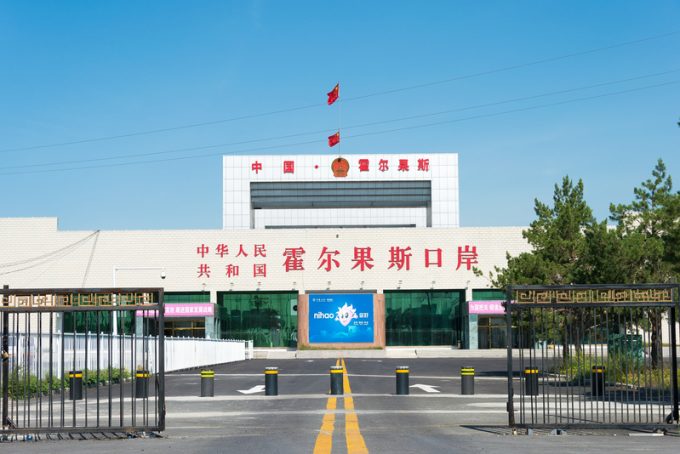Seko Logistics appoints Ursula Wallace to head up North America ocean freight
Seko Logistics has appointed veteran forwarder Ursula Wallace (above) to head its ocean product, North ...

China’s One Belt, One Road (OBOR) project passed a milestone this week, when Ceva Logistics became the first company to complete a shipment by truck from China to Spain.
During the 16-day journey, the vehicle covered more than 13,600km, carrying 7,000kg of garments, traversing China, Kazakhstan, Russia, Belarus, Poland, Germany and France.
After passing through Khorgos at the China-Kazakhstan border, no further inspections were required before Spain.
Executive VP of Ceva Logistics in North Asia Torben Bengtsson said: “This was the last official trial for our new China-Europe trucking service before we begin regular service this month.
“Together with our partner Alblas International Logistics, we will extend our trucking footprint through this unique service, and the TIR trucking will change our customers’ logistics flow significantly.”
And there was a milestone for Ceva, too, as it completed the first TIR trucked service between China and Poland at the tail end of last year.
Director of road and rail at Ceva, Kelvin Tang, said: “It’s a very cost-sensitive alternative to air and rail transport, as it’s 40% lower than air and at least 10 days faster than rail transport.”
Even so, both China and Russia are continuing their strong focus on developing rail connectivity, with the Russian government having entered a memorandum of understanding (MoU) with Kyrgyzstan to develop the republic’s rail network.
The MoU was signed by representatives from both governments in Bishkek last week, with the initial work focused on development of a preliminary feasibility study (PFS), under which both sides will look at bringing through a “phased development” of the rail network in Kyrgyz.
According to a statement from Russian Railways, projects under consideration include construction of a China-Kyrgyzstan-Uzbekistan railway and several Kyrgyz rail junctions.
Russian Railways is also part of a group of companies and government departments looking at development of an Arctic “Northern Latitudinal Railway”, which it claimed would become a “testing ground” for modern construction technologies.
Director general of Russian Railways Oleg Belozyorov said the route would offer “additional impetus” to “intensively” develop Arctic resources and “strengthen” Russia’s economy.
“The trip will be reduced by more than 760km, which means that the delivery time for cargo from fields in the northern regions of Western Siberia and the Tyumen region will be reduced,” he added.
“Innovative materials that work at low temperatures need to be used, but it’s also necessary to consider climate change forecasts, because this rail line will work into the next century.”
Comment on this article